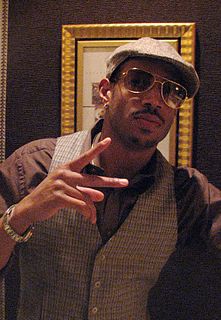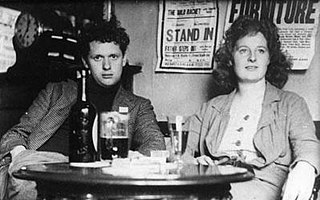A Quote by Nassim Nicholas Taleb
I want them poor and they deserve to be poor. You can't have capitalism without punishment.
Quote Topics
Related Quotes
The essence of capitalism is expressed in two of its basic features: a) profit maximization and b) market competition. In their abstract formulations none of them was supposed to have anything conspiratorial against the poor. But in real life they turn out to be the "killers" of the poor - by making rich the richer and poor the poorer.
It is easy to say that there are the rich and the poor, and so something should be done. But in history, there are always the rich and the poor. If the poor were not as poor, we would still call them the poor. I mean, whoever has less can be called the poor. You will always have the 10% that have less and the 10% that have the most.
I don't want there to be this separation between the rich and poor. I may be part of the three percent because I've been fortunate and done well for myself, but I will never forget about the 97 percent. That was me growing up. I was so poor I dreamt about being just 'regular poor,' not 'poor, poor.'
When you live in a poor neighborhood, you are living in an area where you have poor schools. When you have poor schools, you have poor teachers. When you have poor teachers, you get a poor education. When you get a poor education, you can only work in a poor-paying job. And that poor-paying job enables you to live again in a poor neighborhood. So, it's a very vicious cycle.
Hurricane Katrina overwhelmed levees and exploded the conventional wisdom about a shared American prosperity, exposing a group of people so poor they didn't have $50 for a bus ticket out of town. If we want to learn something from this disaster, the lesson ought to be: America's poor deserve better than this.
Poverty assumes so many aspects here in India. There aren't only the poor that you see in the cities, there are the poor among the tribes, the poor who live in the forest, the poor who live on the mountains. Should we ignore them as long as the poor in the cities are better off? And better off with reference to what? To what people wanted ten years ago? Then it seemed like so much. Today it's no longer so much.
Class certainly loomed large in Katrina's aftermath. Blacks of means escaped the tragedy; blacks without them suffered and died. In reality, it is how race and class interact that made the situation for the poor so horrible on the Gulf Coast. The rigid caste system that punishes poor blacks and other minorities also targets poor whites.
When we want to help the poor, we usually offer them charity. Most often we use charity to avoid recognizing the problem and finding the solution for it. Charity becomes a way to shrug off our responsibility. But charity is no solution to poverty. Charity only perpetuates poverty by taking the initiative away from the poor. Charity allows us to go ahead with our own lives without worrying about the lives of the poor. Charity appeases our consciences.


































